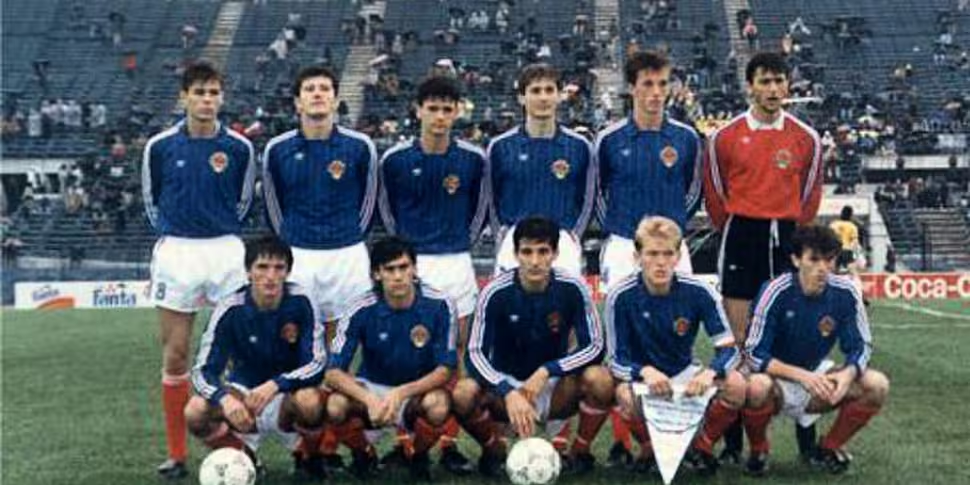However much football tries to survive in its own cocoon, politics and war has a habit of popping the soft outer layer of the bubble as we have seen with the examples of Berlin clubs, AEK Athens and the Austrian national side of the 1930s.
But that doesn’t mean that scenarios cannot be drawn up in the mind. Perhaps a Balkan mountain backdrop with a bit of a Dalmatian coastline in the foreground would help illuminate one particular team that never came to be.
Before the wars in Serbia, Bosnia and Croatia, something was afoot in the Balkans in the late 80s.
In 1987, Yugoslavia as it was known then, were World Champions at U20 level, beating Germany in the final. Of course winning U20 World Cups is hardly a definitive sign of senior success.
But the names on that team sheet – particularly the Croatian contingent – just slip off the tongue. Robert Prosinecki, Davor Suker (Golden Boot winner), Robert Jarni, Igor Stimac and Zvonimir Boban were the core of a Croatian team that would finish 3rd at the 1998 World Cup and regularly qualify for major tournaments, while Serbian striker and Champions League winner with Real Madrid Predrag Mijatovic was also part of that U20 triumph in Chile.
Then again throw in the Yugoslavia (essentially Serbia and Montenegro) side that reached the last-16 at France ’98 and other than Mijatovic they had other fantastic players like Dragan Stojkovic, Vladimir Jugovic, Sinisa Mihajlovic and a very young Dejan Stankovic just to name a few.
They had a great tournament in 1998 until Edgar Davids’ golden goal in the second round sent them home.
To put some of those individuals above into context, Davor Suker's World Cup Golden Boot was no fluke.
During the 90s he was one of the most classy finishers in European football. He scored over 200 goals at club level at teams like Sevilla, Real Madrid and Arsenal. His international rate was also domineering as he scored 45 goals in less than 70 games to became all-time top scorer for the newly-independent state.
Prosinecki was the conductor of the orchestra in the Croatia midfield, a technical master, who was the true star of the U20 World Cup win.
Boban is famous for his role in kicking a policeman during the infamous Dinamo Zagreb v Red Star Belgrade riot which became an iconic moment in Croatia's fight for freedom. But on the pitch he was a talented midfielder and leader who spent a decade at AC Milan, winning domestic and European trophies.
Mijatovic, meanwhile, is a hero at Real Madrid where he scored the winning goal in the 1998 Champions League final.
Blending both teams with the shared experience of winning youth tournaments together could have created a truly formidable side that could well have rivalled or even usurped the France side that dominated the game at the end of the 90s and start of the 2000s.
When you consider the top teams in that era, a combination of Croatia and Serbia could have held their own - and more - against the likes of Brazil, France and the Netherlands, while they would have had the edge on the Spain and England sides of the 90s, due to the abundance of talent.
Croatians and Serbs are both proud nations that revel in their mutual independence but this is what that team could have looked like, tactical considerations thrown out the window…

And who's to say that their successors like Luka Modric, Nemanja Vidic, Stevan Jovetic and Edin Dzeko would more than hold their own against the very best in the world.
Main Image: Davor Suker is in the back row, second from the left. Next to him on the far left is Zvonimir Boban. Robert Prosinecki is the blond player in the front row (second from the right).









